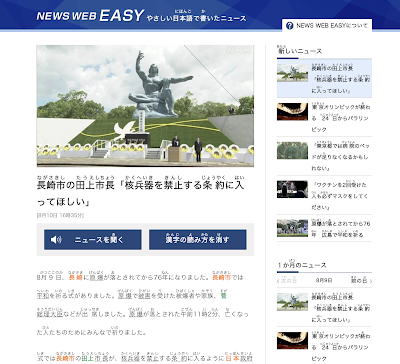Author of WICKER PARK WISHES, a novel, published by Eckhartz Press "It's like 'Hi Fidelity' from a woman's perspective. A 90s book about relationships." - John Siuntres, WordBalloon. Language discussion and expression, a view from the city: "A fascinating and enlightening look at language and other important matters" - Rick Kogan, Chicago Tribune "...definitely an interesting voice!" - Languagehat.com "...a great site!" - Mary Beard, Times Literary Supplement
8.13.2021
Reading easier text helps my Japanese
8.05.2021
I like making money
If I were paid well per hour, I would have made a lot more money than I have over the past couple of years, because I have racked up so many hours at my main part-time job and have stayed employed at my other gigs, that it would add up to a lot of dough. I have been working at different jobs simultaneously, and autumn looks like it's going to be super-busy as well, but I'm not getting rich. And that's okay, but I really wouldn't mind making a lot of money. I never have, and never cared if I did, but I've seen what it can do. Not only does it allow you to do more and decrease worry about being able to pay for things, but it really helps the economy and helps people live better lives.
This was clear when the pandemic hit last year. I live in an area with stores and restaurants, and they had to be closed, so people couldn't work. I ended up doing what I usually didn't do before: ordering out at least a few times a week to give the restaurants business. I saw the effect that few or no customers had on places, and even though I wasn't paid well, I was over-employed and didn't lose any work, so I used the money I made to spend elsewhere. I also sublet an office space when I could have easily worked at home, and I kept getting a monthly massage and eventually returned to the gym, and kept going to a trainer. I was really lucky that I could do all those things, and my employment still hasn't decreased. Now I'm thinking what else I could do if I had more money to spend.
There is a lot of consumerism, even conspicuous consumption, going on in my area. I don't know if the people who are buying luxury items or going to restaurants are thinking about the positive effect they're having on the economy, but they really are helping. Now I realize that if I were wealthy, I would gladly spend money at businesses and get various services. I wouldn't be irresponsible, because I've always lived within my means, but I'd do more. For instance, if I had tens of thousands of dollars to spare (and of course I don't make that much), I would get rid of my car and hire a driver every time I had to go somewhere. Many drivers could not work during the lockdown, and now they're catching up. I would gladly leave the driving to someone else, and it would give someone else money to pay their bills and improve their life.
It's important to save for a rainy day; I've experienced underemployment and was laid off at one point, and couldn't find work and felt horrible. There have been times when my checking account didn't have much in it, so I could basically pay my bills and not do much else. Not having money is a real drag, and there are, of course, many people who are struggling throughout the world. Before the pandemic, I would look at busy places and think that I didn't have to spend anything there because people already were giving them business. But during the pandemic, there weren't many people around to patronize the businesses, so I realized my spending helps; it helps the people working there and helps those throughout the supply chain. Spending has become a way to help society, so now I'm seeing having money as more than just a buffer; when circulated, it goes in other people's pockets so that they can give their families more than just the basics.
I managed to travel a bit, spending a couple of days in Milwaukee and in Central Illinois. I was really glad to spend money on the hotels, restaurants, theater swag, and a museum membership. I wish I could do more, but I plan on doing what I can as I keep working and earning enough so that I have disposable income that can be shared in productive and enjoyable ways.
